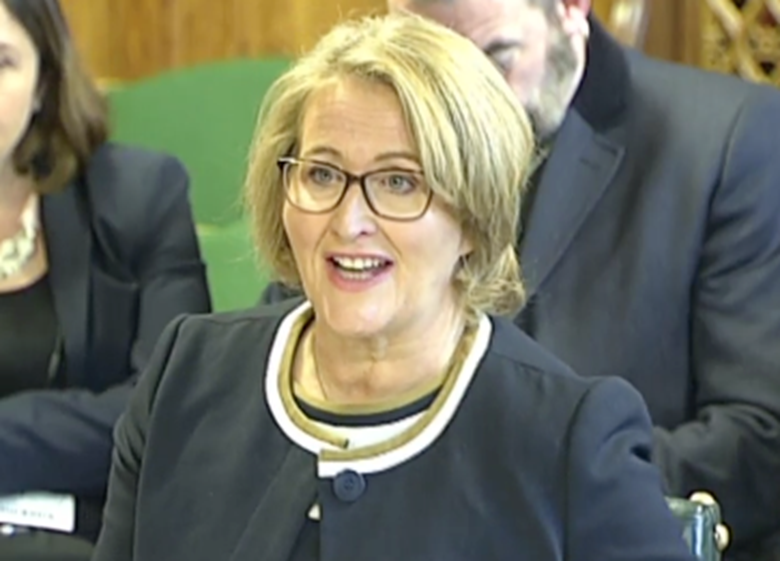Longfield calls for action to tackle informal exclusions
Joe Lepper
Tuesday, November 14, 2017
The children's commissioner for England has pledged to push for action to address rising numbers of vulnerable children being informally excluded by schools.

Appearing before the House of Commons education select committee, children's commissioner Anne Longfield said she is concerned that a number of schools are forcing or "encouraging" children with behaviour issues to leave school.
She told MPs that the situation is leading to a rise in home education and that many pupils involved have special educational needs.
"I've been inundated with conversations from local authorities about this," she said.
"They have been telling me on a very regular basis for at least the last six months that they can see a rise in the number of children who are being either excluded from schools or encouraged to move from schools.
"That means that the number of children who are going to alternative provision is growing. The number of children who are going into home education is growing."
Longfield said that at a recent conference involving council representatives many told her the number of home education children in their areas had doubled, with some saying numbers had trebled.
She added: "We estimate that 50,000 children are being home educated. Probably only about 25 per cent are the 'philosophical' parents doing it for philosophical reasons.
"So often it is because the child is seen to not get on with the school, or the school not get on with the child, and the school then encourages families to look for another approach.
"For me the fundamental rights of children to a good education is something that is paramount."
Labour MP Ian Mearns said he has concerns around the quality of home education many are receiving.
"An awful number of pupils who have been excluded from schools are not receiving anything that you could categorise as home education," he said.
Another committee member, Labour MP Emma Hardy raised concerns around a link between exclusions and school behaviour policies, giving examples that she said "are running roughshod over the human rights of children" by placing unfair demands on pupils around how they should speak and conduct themselves in school.
She said such policies are contrary to the UN convention on the rights of the child, which says that school discipline "should respect children's dignity".
She then read an extract from one school behaviour policy that stated: "Little baby voices that no one can hear waste everyone's time. We need confident professional projection. If you have your hands over your mouth, your head down, eyes averted, you're mumbling and just too quiet you come across as lacking in confidence, immature and not even that bright."
Longfield said that she would urge the Department for Education to ensure that all school behaviour policies have a focus on children's rights.
"That is something I will recommend to the DfE and am happy to co-author as well," Longfield said.
"We know that half (of those excluded from school) have special educational needs. Many haven't been excluded but are nonetheless ending up in alternative provision and clearly that's about behaviour. Those (behaviour) policies don't have regard for children's own needs within that."
Longfield said she is also concerned that schools may be incentivised to remove challenging pupils to ensure they have stronger GCSE results.
"The vast majority of those discussions take place in year 10 and 11 - 72 per cent of them actually - which leads me to believe there must be something which is an incentive to the school to get those children in a different situation," Longfield said.
This week Longfield has also released a schools exclusion briefing paper detailing latest figures around those who being educated through alternative provision.
It shows that there are 38,000 children enrolled in alternative provision, such as pupil referral units, and 50,000 five- to 17-year-olds are being home-educated.
Inappropriate and illegal exclusions was also raised as a concern by Longfield's predecessor Maggie Atkinson four years ago. A report published by Atkinson in 2013 included a survey of 1,000 teachers that found that an average of 10 schools in each council area had sent pupils home without recording them as exclusions.
Also at the education select committee hearing Longfield urged the government to consider legislation to force social media companies to better protect vulnerable young people from threats such as cyber-bullying.
She also wanted to see an inquiry into votes for 16- and 17-year-olds and called for better protection for early intervention funding to prevent vulnerable families reaching crisis point.




